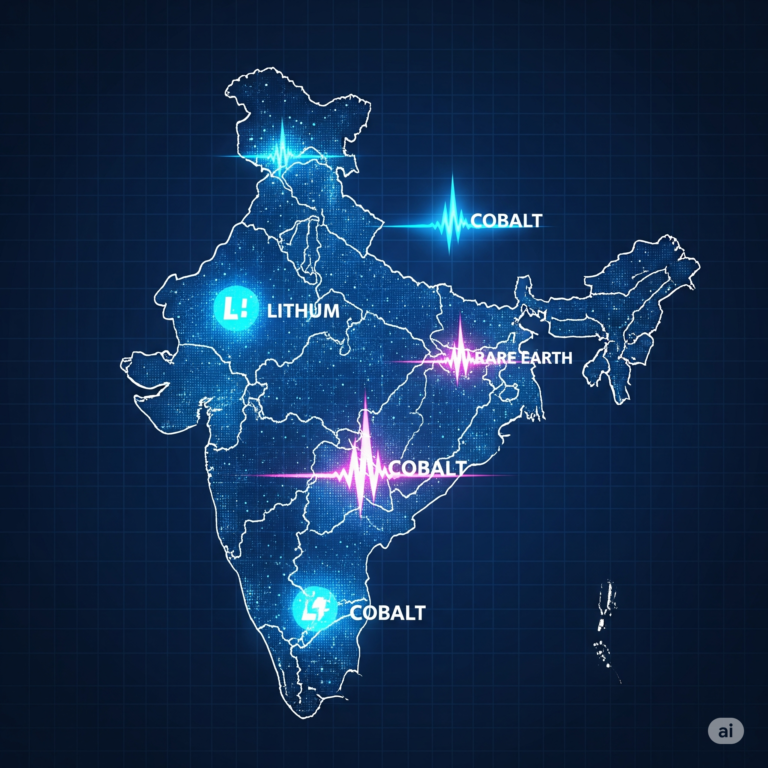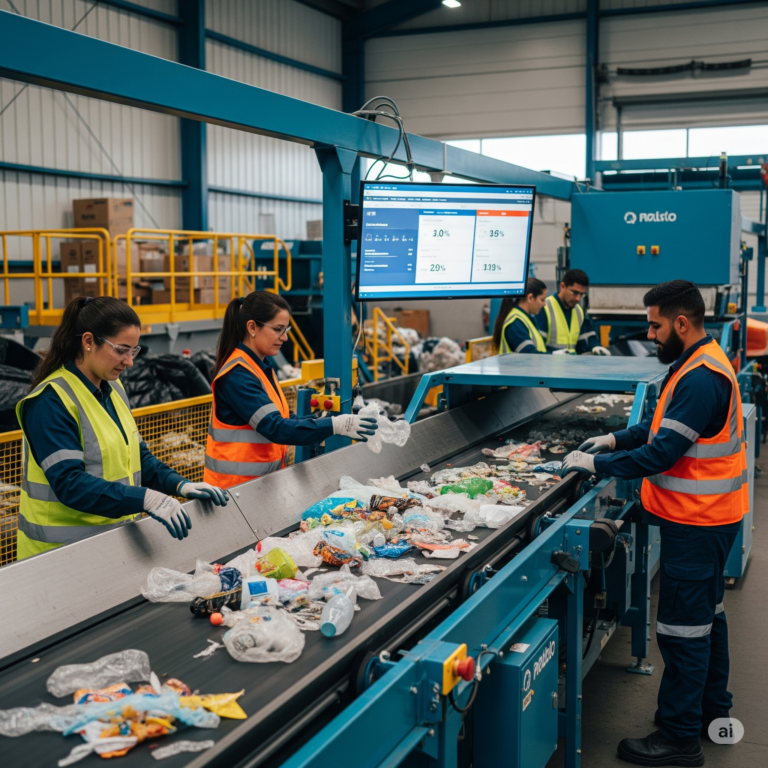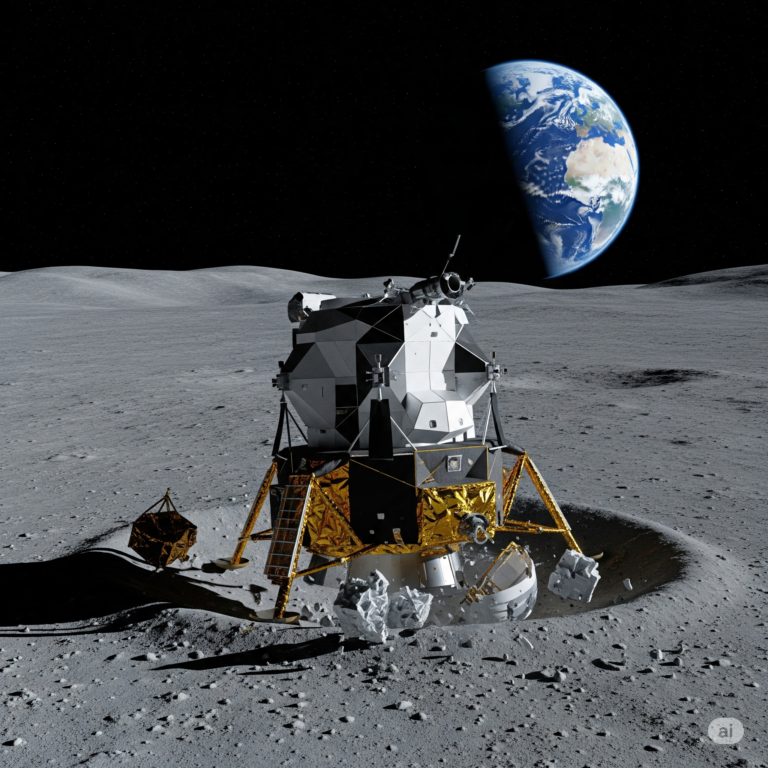Introduction
Vaccines have long been one of the most powerful tools in modern medicine, helping to prevent and control the spread of infectious diseases. However, traditional vaccine development is a time-consuming and costly process that can take years or even decades. With the rise of global health crises, such as the COVID-19 pandemic, the need for faster, more efficient vaccine production has never been more urgent.
Enter Artificial Intelligence (AI)—a game-changing technology that is revolutionizing vaccine development by accelerating research, optimizing clinical trials, and enhancing manufacturing processes. AI-driven models can analyze massive datasets, identify potential vaccine candidates, and predict immune responses in a fraction of the time it takes traditional methods.
In this article, we will explore how AI is transforming vaccine development, the key technologies behind it, its impact on global healthcare, and what the future holds for AI-driven medical research.
1. The Traditional Challenges of Vaccine Development
Before understanding how AI is changing the landscape, it’s important to recognize the challenges of conventional vaccine development:
🔹 Time-Consuming Process: Traditional vaccine development can take 10-15 years from research to public distribution.
🔹 High Costs: The average cost of developing a new vaccine can exceed $1 billion, due to extensive research and clinical trials.
🔹 Unpredictable Outcomes: Many vaccine candidates fail in early-stage trials, leading to wasted resources.
🔹 Viral Mutations: Some viruses, such as influenza and COVID-19, mutate rapidly, requiring constant vaccine updates.
🔹 Limited Global Accessibility: Slow production and distribution result in unequal access to life-saving vaccines.
With these challenges in mind, AI has emerged as a powerful tool to speed up the process and ensure better efficiency and accuracy.
2. How AI is Accelerating Vaccine Development
AI is streamlining multiple stages of vaccine development, from identifying potential candidates to optimizing clinical trials and manufacturing processes. Here’s how:
A. AI in Vaccine Discovery & Candidate Identification
AI-powered algorithms can rapidly analyze genetic sequences and predict which viral proteins are most likely to trigger an immune response.
✔ Example: During the COVID-19 pandemic, AI models analyzed the SARS-CoV-2 genome within hours, identifying the spike protein as the ideal target for vaccines like Pfizer-BioNTech and Moderna.
✔ AI in Action: DeepMind’s AlphaFold predicted the 3D structure of viral proteins with unprecedented accuracy, aiding in vaccine research.
B. AI in Drug Repurposing for Vaccines
AI can analyze existing drugs to identify compounds that might be repurposed for new vaccines.
✔ Example: AI-driven platforms like BenevolentAI and Atomwise scanned existing drug databases to identify potential COVID-19 treatments.
✔ Why It Matters: Repurposing drugs speeds up vaccine availability, as these compounds have already undergone safety testing.
C. AI in Clinical Trials Optimization
Clinical trials are one of the longest and most expensive stages in vaccine development. AI is transforming this phase by:
✔ Patient Recruitment: AI identifies suitable trial participants faster by analyzing electronic health records (EHRs).
✔ Predicting Trial Outcomes: AI models simulate how vaccines will perform in diverse populations, reducing trial failure rates.
✔ Monitoring Adverse Effects: AI systems track real-time data to detect potential side effects early.
✔ Example: Moderna partnered with IBM Watson AI to optimize COVID-19 clinical trials, significantly reducing trial delays.
D. AI in Vaccine Manufacturing & Distribution
Once a vaccine is approved, AI helps with efficient large-scale production and distribution.
✔ Supply Chain Optimization: AI predicts raw material demand and prevents supply shortages.
✔ Manufacturing Automation: AI-driven robots streamline vaccine production, increasing efficiency and consistency.
✔ Cold Chain Logistics: AI ensures vaccines are stored and transported at the right temperature to maintain efficacy.
✔ Example: AI-driven logistics platforms helped Pfizer and Moderna distribute COVID-19 vaccines globally with minimal delays.
3. Key AI Technologies Driving Vaccine Development
Several AI technologies are at the heart of this transformation:
🔹 Machine Learning (ML): Identifies patterns in biological data to predict the most effective vaccine targets.
🔹 Natural Language Processing (NLP): Analyzes scientific literature and research papers at superhuman speeds.
🔹 Deep Learning: Simulates complex biological interactions to optimize vaccine formulations.
🔹 AI-Powered Robotics: Automates lab experiments and high-throughput screening of vaccine candidates.
🔹 Blockchain for Data Integrity: Ensures secure, tamper-proof data management during clinical trials.
4. The Impact of AI-Powered Vaccines on Global Health
The integration of AI in vaccine development has resulted in several groundbreaking benefits:
✅ Faster Response to Pandemics: AI dramatically reduces the time required to develop and distribute new vaccines.
✅ Lower Development Costs: AI minimizes resource wastage by improving efficiency at every stage.
✅ Personalized Vaccines: AI-driven models pave the way for customized vaccines based on genetic and regional variations.
✅ Improved Vaccine Effectiveness: AI helps design better-targeted vaccines with fewer side effects.
✅ Enhanced Global Accessibility: AI streamlines production and supply chains, ensuring vaccines reach remote areas faster.
5. Challenges and Ethical Considerations
Despite its advantages, AI-driven vaccine development faces some challenges:
🔹 Data Bias: AI models rely on training data, which may not be fully representative of global populations.
🔹 Regulatory Hurdles: AI-driven vaccines must still undergo rigorous safety testing to meet health regulations.
🔹 Cybersecurity Risks: Vaccine research data must be protected from cyber threats.
🔹 AI Explainability: Scientists must ensure AI-generated vaccine candidates are backed by clear biological reasoning.
Addressing these concerns is crucial to ensure AI-driven vaccines are safe, effective, and widely accepted.
6. The Future of AI in Vaccine Development
AI is set to redefine the future of vaccines, with exciting developments on the horizon:
🔹 AI-Powered Universal Vaccines: Researchers are working on AI-designed vaccines that protect against multiple viral strains.
🔹 Real-Time Disease Surveillance: AI-driven early warning systems could predict future pandemics before they occur.
🔹 AI and mRNA Technology: AI will continue improving mRNA vaccine platforms, leading to faster breakthroughs.
🔹 Fully Automated AI Labs: AI will work alongside robotic labs to speed up vaccine research.
With these advancements, AI has the potential to make future pandemics far less devastating.
Conclusion
AI is revolutionizing vaccine development, reducing timeframes from decades to months, and making vaccines more effective, accessible, and affordable. As technology advances, we can expect even greater breakthroughs in disease prevention, personalized medicine, and global health security.
With AI on our side, the fight against infectious diseases has never been more promising. The question is: How quickly can we harness AI’s full potential to eradicate deadly viruses forever?












+ There are no comments
Add yours